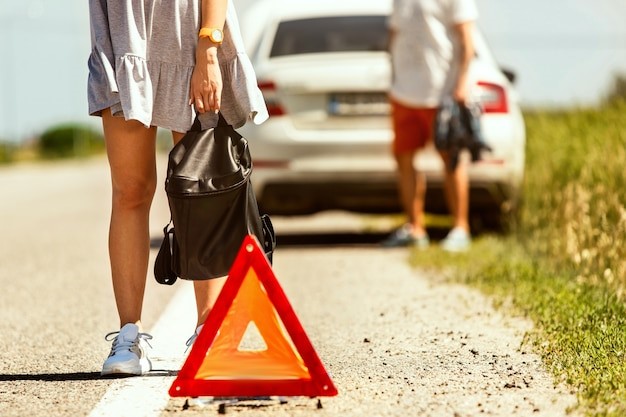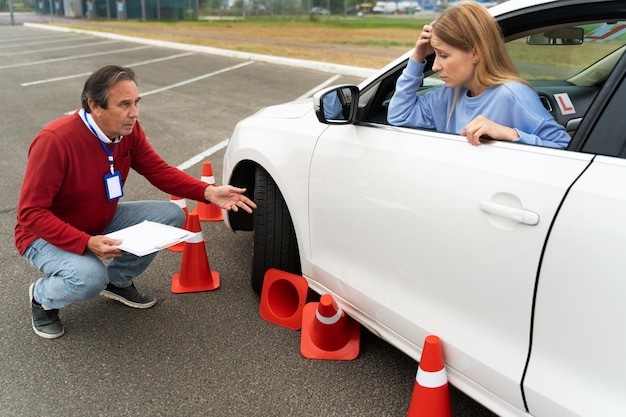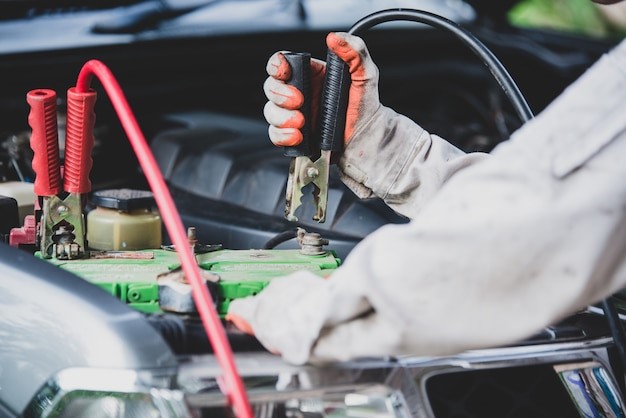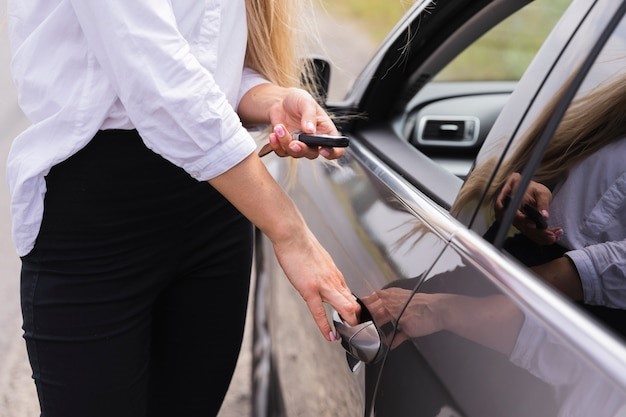Have you ever been running along on the road, and then you look and there is that low fuel light? This is followed by that sinking feeling, of course, the: Uh oh, am I going to run out of gas? It is too irritating, even frightening, inconvenient in any case. Gas running out is not only a problem that leaves you stranded, but it may result in damage to the car and even safety of the person. This blog explores a few smart driving tricks and a bit of planning that will help you side step this all-too-common issue altogether. Then, let;s avoid running out of gas with these smart driving tips to ensure that your ride is smooth and as safe as possible.
Why Running Out of Gas Is Bad for Your Car (and You)
To begin with, why bother with reasons other than the fact that it is a pain? The condition of mechanical health of your car will actually be damaged by running out of gas. Here’s why:
- As the fuel tank empties, the fuel pump may end up sucking air and other debris and this can lead to overheating and failure of this pump. Fixing can be expensive in a hurry here.
- The fuel is also used to cool and lubricate the fuel pump. In its absence, the pump is not safeguarded and may become worn out earlier.
- Of course, there is your engine. It can cause accidents or other safety problems when you stall on busy roads or highways, which is the last thing you want!
That low fuel light is not a suggestion that your car and you should heed. Consider it as a minor push to make you leave the road so that you can have time to refuel.
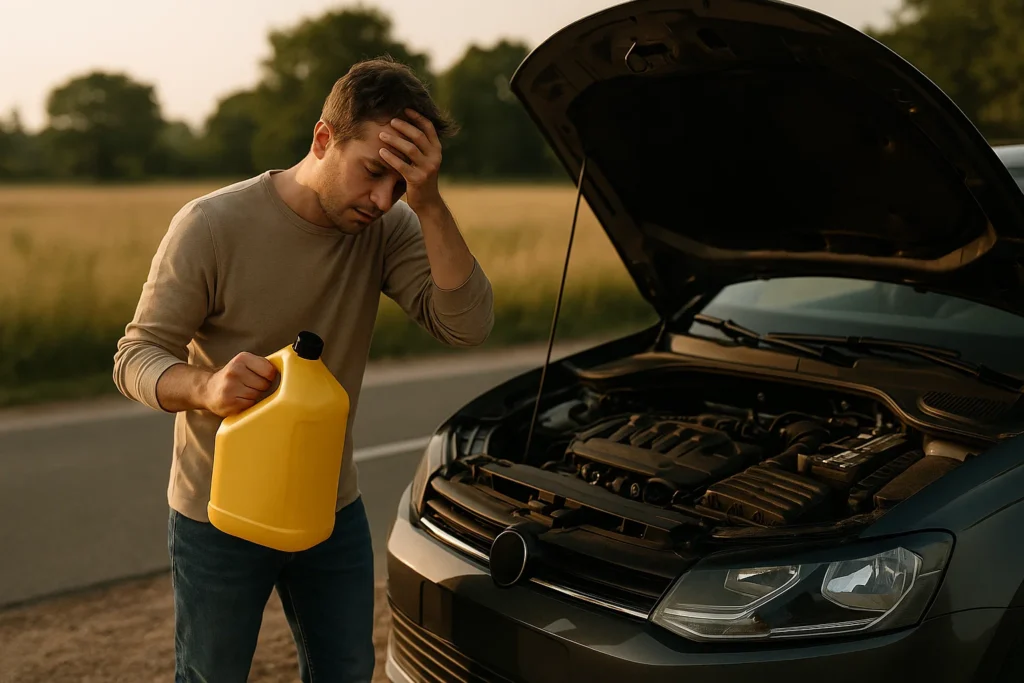
Smart Driving Habits to Prevent Running Out of Gas
All right, now to the interesting part. What can you do to prevent the scenario of being on the side of the road with an empty tank? These are some of the intelligent habits that will actually assist:
1. Refuel Early and Regularly
This is most likely the most forgotten tip, but it is also the easiest one. You do not have to wait until the light comes on to refuel your tank, you should fill your tank when it is about a quarter full. Why? There are times when your fuel gauge can be a little off and sometimes gas stations are not right next to you. When you keep your tank full, you will have gas in reserve.
2. Understand Your Vehicle’s Fuel Range
Each car has its eccentricities. Have you ever wondered how much you can actually travel on your car after the light has come on? This depends on the make, model and driving situation. Consult your owner manual or make a test run to find out what should be expected. This knowledge can keep the anxiety levels low and plan stops more effectively.
3. Drive Smoothly and Avoid Aggressive Driving
The manner in which you drive may not be obvious to you but it influences your fuel consumption in a big way. Rapid acceleration, speeding and hard braking will eat into your gas more than smooth and even driving. In highways, apply the cruise control where possible. It also makes your speed more even, but it also conserves fuel.
4. Plan Your Routes Smartly
Have several errands to do? Take them together instead of taking short trips. When your car is cold it consumes more fuel hence the less you go the better. Moreover, navigation applications will help you not to get stuck in the traffic and find gas stations on the route. Planning your routes will help save on gas and time.
Fuel-Saving Tips When You’re Running Low on Gas
But suppose that you are down to your last few drops? No need to panic, there are a few tricks to make that fuel last a bit longer:
- Switch off your air condition. The AC places an additional burden on your engine and uses more gasoline.
- When driving on the highway, it will help to keep your windows up because it will allow less drag.
- Use a moderate speed, say 45 to 55 mph, which can be the optimum speed in terms of fuel efficiency.
- Also, do not use electrical appliances such as the radio or charging ports when there is no need, since they consume power, which may affect the fuel consumption.
These minor changes are what it takes to either reach the next gas station or not.
Vehicle Maintenance Tips to Improve Fuel Efficiency
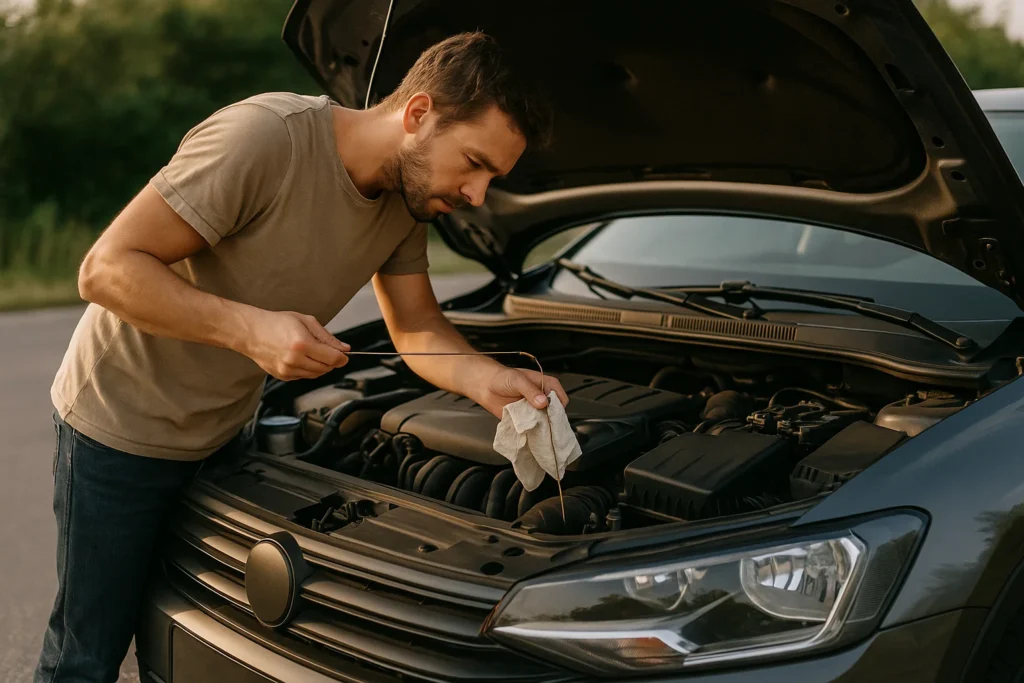
The thing is that the state of your car influences the gas mileage. Routine checkups ensure that your engine is efficient and help you to save at the gas station. This is what to watch out:
- Ensure that your tires have the right pressure. Tires that are underinflated consume more fuel due to the high rolling resistance.
- Change air filters frequently- clogged air filters strangle your engine and lower performance.
- Clean or change fuel injector and spark plugs as suggested.
- Remain abreast of tune-ups and oil changes so that everything can do smoothly.
Just think of it as a bit of car-care TLC on your car to improve your fuel economy.
What to Do If You Run Out of Gas
The most carefully planned out even happens to go wrong. In case you actually run out of fuel, safety must be the first consideration:
- Park in a secure location, preferably out of your way and raise your emergency flashers.
- Do not pull over in unsafe zones or the busy highways.
- It is also a good idea to have a small empty gas can in the trunk in case of an emergency- just remember to store it safely and not in the cabin of the vehicle.
When you are by the roadside, you can call roadside assistance or call someone to assist you instead of pushing your car in the highway.
Useful Tools and Apps
In this case, technology can become your best friend. GasBuddy and other apps are simple to use as they find the closest and most affordable gas stations, so you can refuel without having to drive too far out of the way. It is also possible to set reminder on the phone to remind you to check the fuel level before making long journeys. Even a small amount of digital assistance can be rather useful in ensuring that you stay on the road without stress.
Final Thoughts
Running out of fuel means puting your safety at stake. Yet, it is possible to avoid such heart-stopping situations by incorporating a few good smart driving skills and frequent car inspection. Remind yourself to fill early, be familiar with your cars range and drive in a smooth manner. And even when you do run low on gas, there is always the pump, slow down, calm down, and get to safety.
After getting these tips, why not have a look at your fuel gauge now? Plan to have a full tank every time you are on the road, make it a habit and you will always drive stress-free and smartly.
But in case if u run out of fuel or in need of any road side assistance contact us at All 4 One Transportation.
FAQs
Depending on the car, the mileage can be different, but on average, a car will be able to cover between 30 to 50 miles after the low fuel indicator comes on. But this would be subject to factors such as driving style, terrain and the size of the fuel tank, so it is better not to over depend on this margin.
The main danger of running out of gas is that it may damage the fuel pump since it is cooled and lubricated by gasoline. Although the engine will be less prone to actual damage, fuel starvation may result in the engine stalling unexpectedly due to repeated fuel starvation, which in turn may create safety risks.
When you are out of gas in a dangerous place, you should think of the safety first. Switch on hazard lights, remain in your vehicle in case it is safe, and contact the roadside assistance or emergency services. Do not go to a busy road to get assistance.

